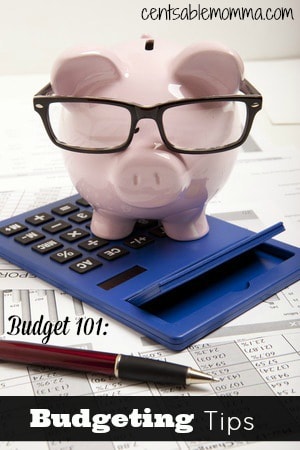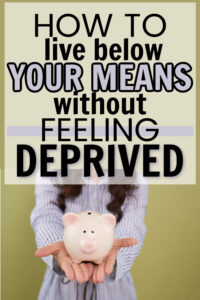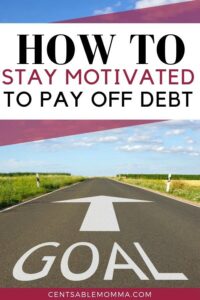Thanks to Emily @ Bloom for her excellent guest post on budgeting!
In a recent conversation with my husband, a CPA who does financial planning for high net-worth individuals, I asked what advice he would give that, if followed, would make the biggest impact for the most people. He said simply, “live on an effective budget.” This advice comes partly from what he sees with his own clients, and partly from our own personal experience. I agree; we have always been frugal and careful with money, but in the four years that we've been diligently living on a budget we have made more accelerated progress toward our goals than ever before.
Here are some tips to help you be more successful and effective in your budgeting:
Remember What Budgeting Is and Is Not:
Budgeting is planning in advance what to do with your money (then tracking it) instead of wondering afterward where it all went. It’s not just expense-tracking. It is pro-active and forward-looking. It’s also not a kill-joy. People who budget have fun -- they just pay for it with cash instead of going into debt for it.
Get it All In:
In order to plan ahead, you’ll need accurate numbers at the outset. Make sure you’re accounting for all your income and expenses. Your paychecks may not be your only source - do you have any supplemental income? Surplus from last month? As for your expenses, you'll need to create a system to ensure that each expense is recorded - fix the leaks in your boat.
*A word to the wise: if you’re a budgeting novice, don’t give yourself a miscellaneous category. Break your categories down as specifically as you can in anticipation of your spending. And give every dollar a job!
Check Back Often: Especially if you’re new to budgeting, come back to your budget often (weekly) and reconcile. Get a pulse on your spending. Eventually, you’ll get to the point where you’ll just sort of develop a sixth sense for your spending and you’ll be able to reconcile less frequently (monthly) and still stay on track.
Anticipate the unexpected: It’s the unexpected expenses that side-swipe the most well-intentioned budgeters. Anticipate and accumulate for things that typically knock people off their financial feet - car repairs, health related expenses, gifts, job-loss/salary change. Build funds through gradual savings for each of these things so you’re not scrambling and reaching for your high-interest credit card when crisis hits.
Go With The Flow: If you over spend in a few categories -- don’t worry about it. Make adjustments and start fresh next month. Don’t get frustrated and give up. Keep at it. You may not get it all right the first time, but there will be a trend of improvement. Discipline breeds discipline. And eventually you’ll surprise yourself with how accurate you become in your financial management.
Pay Yourself First:
Make your savings allotments before your other outflows. This is how you build those cushion funds for things like car repairs and health incidents. This may mean a few lean months in your "restaurant" category. This may not sound fun, but it brings peace of mind.
Save first. Make the rest of your budget work with what’s left. My husband often says, "I've never met anyone who regretted having saved so much money."
Find a tool that works: There are many budgeting programs out there. My husband and I use YNAB and really love it. We've always tried to be careful with our money, but in the four years that we've been using YNAB, we argue A LOT less about money, we progress towards our goals, and we don't worry about money (and that's not because we don't think about it).
Emily Williams likes her husband, her kids, and (believe it or not) her budget. She also likes to write and does quite a bit of it at her blog, BLOOM. In this season of resolution making lots of people commit to live on a budget. Today Emily's sharing some suggestions to help you stick to that resolution.








Leave a Reply